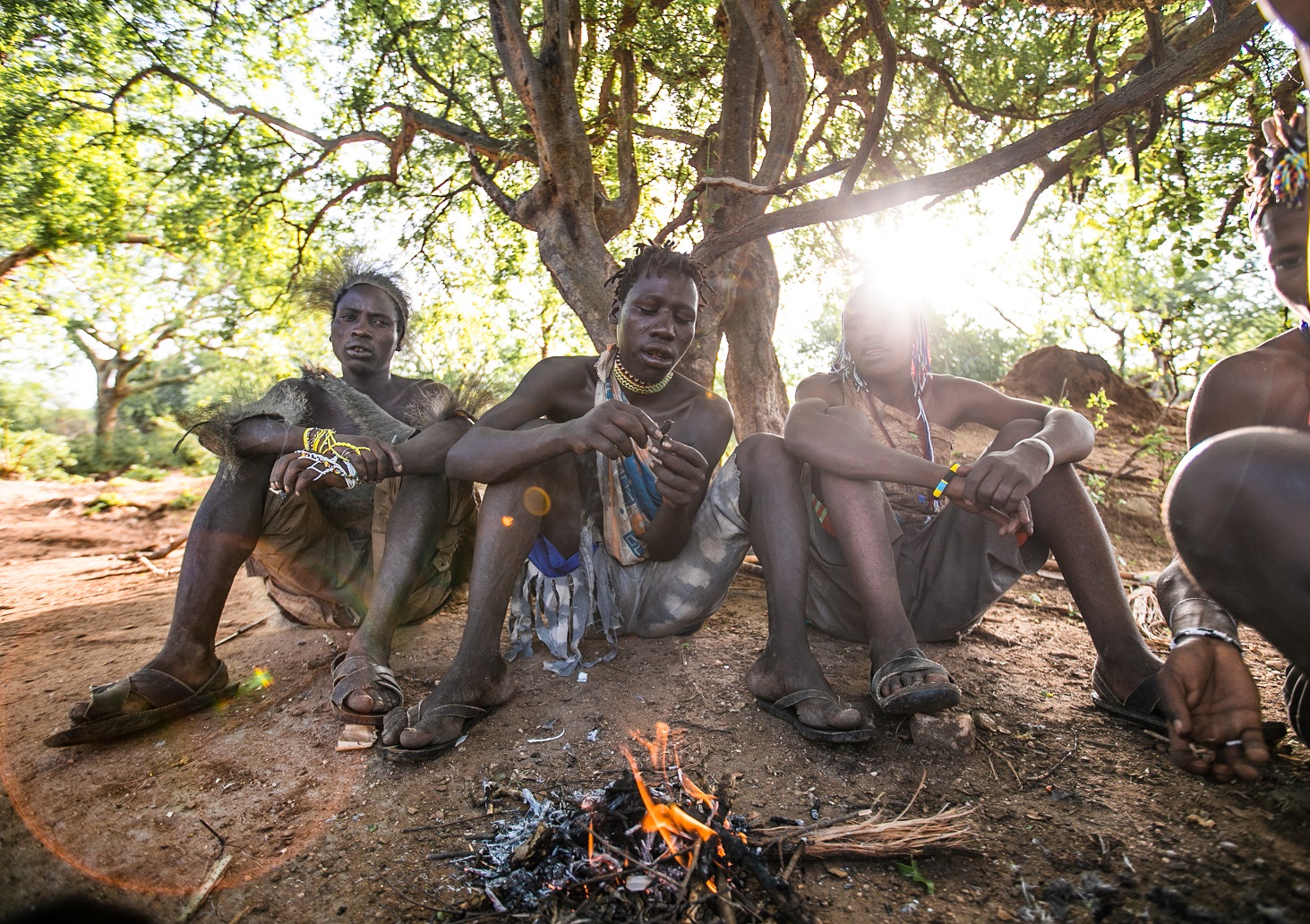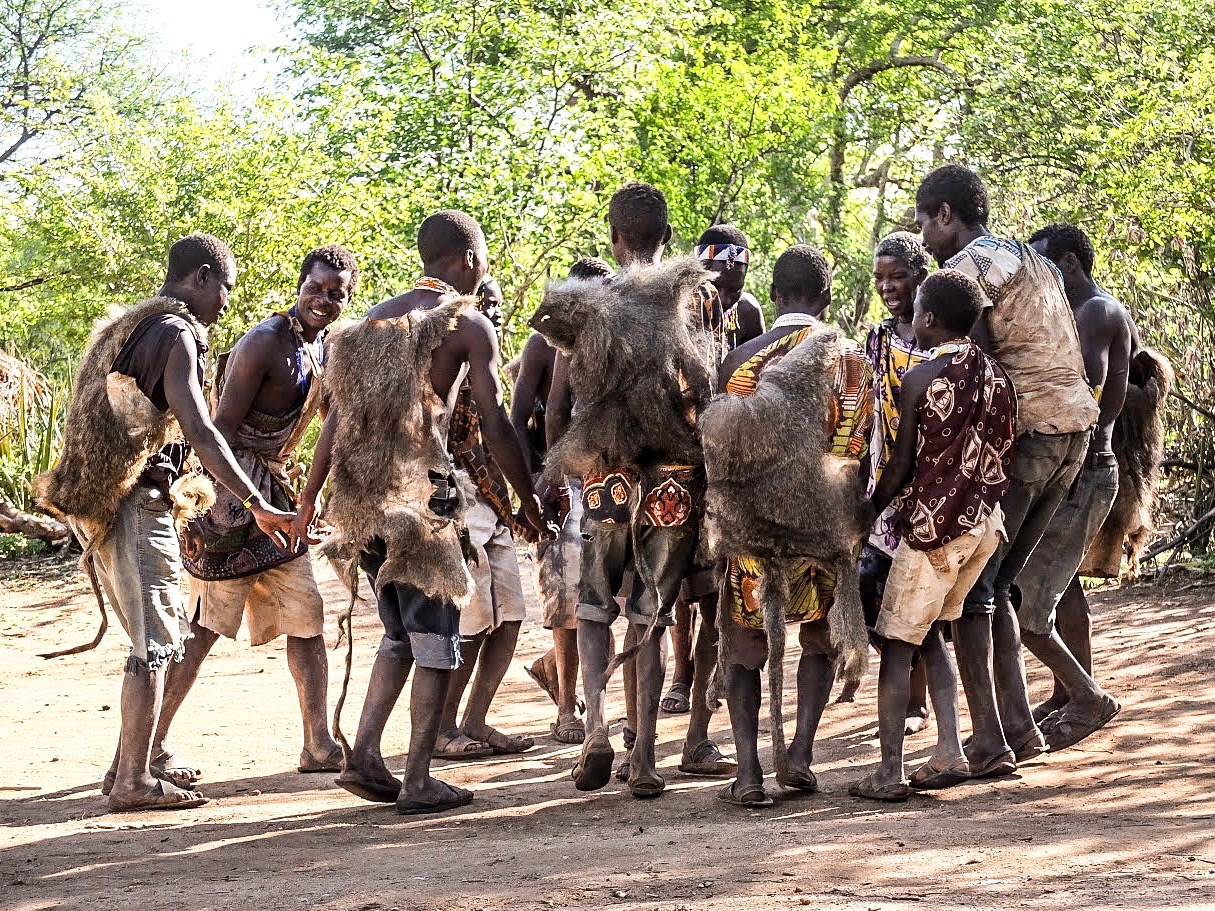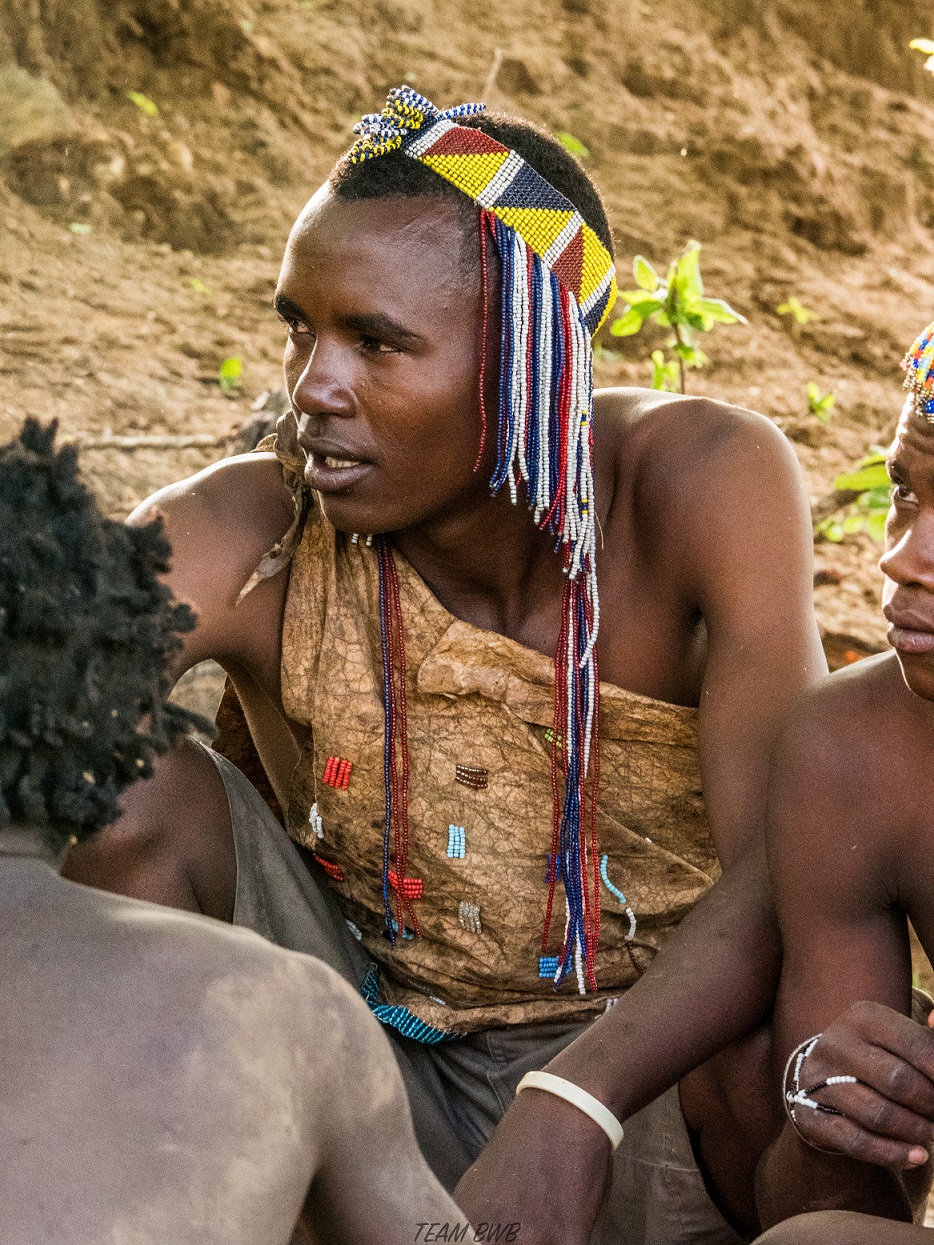What We Can Learn From the Hadzabe
The Hadzabe are an indigenous tribe that lives around Lake Eyasi in Tanzania. They are one of the last remaining hunter-gatherers in the world, and only about a thousand of them remain today. In the Lake Eyasi area in Tanzania, about 300-400 tribe members still live a true nomadic lifestyle. They speak Hadzane, a unique click language that also includes popping sounds and is almost impossible for Westerners to imitate.
Over the past century, the Hadzabe have been losing about 90% of their homeland. Their hunting grounds and habitat are being destroyed by farmers, pastoralists and land developers. There are less animals to hunt, less bees providing honey and less berries and fruits to gather. It is imperative that the tribe gets the support they need to save them from vanishing.
Meeting them at one of their camps and getting a glimpse of their everyday lives can be a valuable lesson – and it is fun at the same time. The tribe members are very friendly, social and eager to show you their world and take you on a hunt with them. Spending time with them can teach us a whole lot – there are many things we can learn from them:
1. They solely live off the land and in harmony with nature
The Hadzabe have been living in harmony with nature for thousands of years, they see themselves as protectors of the land. They use plants as medicine and food, and hunt animals to survive. Their impact on the environment is almost invisible and they have no carbon footprint. To find honey, Hadzabe sometimes collaborate with the honeyguide bird – whistling back and forth until the bird has lead them to a beehive. Once the Hadzabe smoke out the bees and harvest the honey, the bird gets the honeycomb.
The Hadzabe of the Yaeda Valley have recently won the 2019 Equator Prize. The prize is awarded to indigenous groups by the UNDP Equator Initiative for innovative work in developing nature based solutions to climate change and promoting sustainable development. The Hadzabe have been recognized for their Yaeda Valley Project, a forest conservation initiative - an innovative nature-based solution to climate change that delivers sustainable rural development and also contributes to biodiversity.
2. They live in the present and do not worry about the future
The Hadzabe live a free life. Free of most social duties. Free from religious strictures. Free of many family responsibilities. Free from schedules, jobs, bosses, bills, traffic, taxes, laws, news, and money. Free from worry. They enjoy an extraordinary amount of leisure time and do not think about tomorrow - they do not keep track of time and live without calendars. They have no words for the days of the week, or months of the year; their sense of time depends only on the wandering animals and the shifting patterns of their flowering plants. Their ages are estimated by occurrences or events that happened around their births, not by numbers. They do not stress out about what they will eat tomorrow – they take each day as it comes and trust that what they need will be provided by nature.
3. They live in harmony with each other
Families, in-laws and friends live together in camps of about 20-30 members as a peaceful community. Everyone helps raise the children cooperatively, the Hadzabe love all children born into the tribe as their own. Men and women collaborate to build huts for their camps. There is usually one camp leader who is chosen for his wisdom, bravery and intelligence but he does not have any particular power – there is no hierarchy. He must treat everyone equally, show love and solve problems. Individual autonomy is the hallmark of the Hadzabe; no Hadza adult has authority over any other. Women usually have the last say when important decisions are being made. When a couple gets divorced, women may usually choose who the children will stay with. Several times a year, the different camps gather to share ideas, get to know each other, engage in target practice, sing and dance. Some Hadzabe women have married outside the tribe but have returned because they appreciate their simple and harmonic lifestyle that does not force them to submit to their husbands (which is the case in so many other cultures).
4. They live almost entirely free of possessions and only take what they need
The Hadzabe do not own any livestock or permanent living structures; they also do not grow any food – they completely live off the animals and berries/fruits/honey they find every day. The only items they may own are a cooking pot, a water container, and an ax (in addition to their bows and arrows). They will not kill another animal until they have finished eating what they have hunted. They do not store food.
5. They share everything
Once the men come back from a hunt, everything they have caught gets shared among the elders, women and children in the tribe. Whoever has killed an animal, does not show off – it is considered a communal achievement. The same goes for the fruits/berries the women have foraged for throughout the day.
6. They teach us about our roots/ancestors
Genetic testing indicates that they may represent one of the primary roots of the human family tree—perhaps more than 100,000 years old. Meeting them is like going back in time and seeing how our ancestors lived over 10,000 years ago, before the birth of agriculture. They have managed to retain their language, their beliefs and their way of life despite constant pressure from the outside world. They are nomadic and live near caves, and elders share secret stories from their ancestors (which usually include a moral they should follow). They still make fire with sticks and wood, and wear animal skins as clothing to keep them camouflaged (although many Hadza men do wear western clothing such as shirts and/or shorts and many women wear colorful Swahili style dresses nowadays). They sleep around a fire at night and use animal skins to keep themselves warm. They use bows and arrows to hunt and skin animals, and whistle to find each other.
7. They have never been at war and have never suffered from major diseases.
They are peaceful people who almost always moved away rather than fight with anyone. They've never lived densely enough to be seriously threatened by an infectious outbreak.
They have no known history of famine; rather, there is evidence of people from a farming group coming to live with them during a time of crop failure. The Hadza diet remains even today more stable and varied than that of most of the world's citizens.










